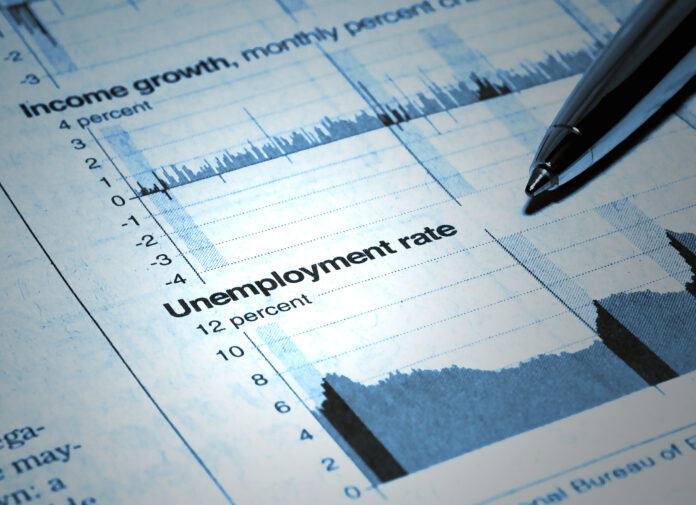(The Center Square) – The Washington Employment Security Department (ESD) is out with June’s unemployment numbers for the state.
The June rate is 4.9%, which doesn’t sound too bad until you compare Washington’s performance to the rest of the nation.
“When you compare us to somewhere like North and South Dakota, they’re at the 2.0% and 2.1% range and doing much better than us,” said Mark Harmsworth, director of the Small Business Center at Washington Policy Center.
Washington 4.9% unemployment rate is the seventh-worst in the nation.
Harmsworth, who posted a blog about the June numbers, points out Washington had an unemployment rate of just 3.8% a year ago, and as a percentage, has a higher rate of job losses over the last 24 months than every other state except Rhode Island.
“There are two big reasons for that,” said Harmsworth. “The first is we’re heavily dependent on tech and retail with Amazon and aerospace as well, and we’ve seen significant layoffs there, but the bigger issue is with small business losses.”
“During the pandemic the state came down heavily, mandating closures which created a huge unemployment problem and depleted the unemployment insurance (UI) fund,” said Harmsworth.
That fund has recovered somewhat, but ESD has increased unemployment tax rates on employers to aid in fund recovery, which has then driven up the cost of products and services.
Harmsworth tells The Center Square he started tracking the unemployment insurance trust fund during the pandemic, posting several blogs as the fund dwindled to a dangerously low point.
“I think we came within about 60 days of bankruptcy that first year of the pandemic,” he said. “The governor’s office actually called at that time to tell me to take down my blog because it may panic people, but they didn’t tell me that I was wrong, so that was very telling.”
What made the governor’s office nervous was a leaked ESD memo that Harmsworth received as the department was being overwhelmed with a backlog of unemployment claims.
“I published an internal memo that got leaked to me from someone at ESD that basically said they were told to approve everything to get the backlog down,” he said.
ESD employees were instructed to remove the protective review and audit restrictions on unemployment claims, which resulted in many being fraudulently approved.
The memo and details are still available on the Shift Washington website and linked here.
Harmsworth says one of the factors hindering Washington’s employment picture is the regressive tax structure, especially when it comes to small business.
“A small business owner puts their heart and soul into it and when you sell it, that’s what you use to retire,” he said.
“Then the state walks in and says now you owe us 7%,” said Harmsworth, “so why would anyone open a business in Washington when they know they’ll get penalized when they sell it?”
Business and Occupation (B&O) taxes deal another blow to business, said Harmsworth.
“It should not be on gross receipts because you can make a million dollars, lose $2 million dollars and still have to pay taxes on the million; it’s ridiculous the way that works,” he said.
According to the June unemployment report, the UI trust fund balance was approximately $3.6 billion. Unemployment benefit payments from the trust fund are projected to be approximately $1.6 billion in 2024 and $1.5 billion in 2025. Claim counts over the past four quarters have been higher than forecasted and ESD reports if this trend continues, the state will see higher benefit payments and a lower trust fund balance than forecasted.
Unemployment numbers for July are preliminary and based on estimates from the Bureau of Labor Statistics (BLS) indicating that employment in the private sector expanded by 700 jobs over the month and employers in the public sector shed 800 jobs, for a net loss of 100 jobs.
For new unemployment claims filed after July 7, 2024, the minimum weekly benefit amount for a Washington worker is $342 and the maximum weekly benefit amount is $1,079.




